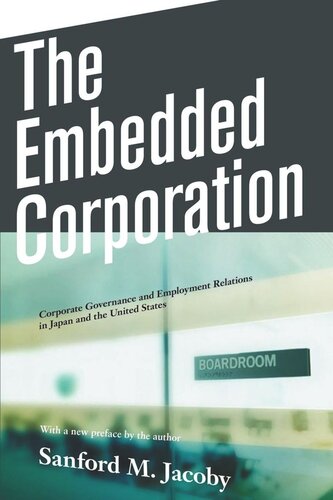

Most ebook files are in PDF format, so you can easily read them using various software such as Foxit Reader or directly on the Google Chrome browser.
Some ebook files are released by publishers in other formats such as .awz, .mobi, .epub, .fb2, etc. You may need to install specific software to read these formats on mobile/PC, such as Calibre.
Please read the tutorial at this link: https://ebookbell.com/faq
We offer FREE conversion to the popular formats you request; however, this may take some time. Therefore, right after payment, please email us, and we will try to provide the service as quickly as possible.
For some exceptional file formats or broken links (if any), please refrain from opening any disputes. Instead, email us first, and we will try to assist within a maximum of 6 hours.
EbookBell Team

4.7
96 reviewsIs there one best way to run the modern business corporation? What is the appropriate balance between shareholders, executives, and employees? These questions are being vigorously debated as layoffs, scandals, and restructurings rattle companies around the world. The common assumption is that globalization is merging the varieties of corporate capitalism. Yet, as this book shows, corporations in Japan and the United States are responding differently to the pressures unleashed by globalization. In The Embedded Corporation, Sanford Jacoby traces this diversity to national differences in economic history and social norms, and, paradoxically, to global competition itself.
The book's vantage point for exploring the varieties of capitalism is the human resource departments of large corporations, where changes in markets and technology turn into corporate labor policies affecting millions of workers. Despite some cross-fertilization, Japanese and American corporations maintain distinctive approaches to human resource management, which has important consequences for how firms compete, for corporate governance, and even for the level of inequality in Japan and the United States.
The Embedded Corporation is a major contribution to our understanding of comparative management and the relationship between business, society, and the global economy.